As the planet warms and glaciers melt, seismic changes in the Earth’s climate plunge the planet into a new ice age. If this sounds like the plot of a science fiction disaster movie, that’s because it is.
But scientists are concerned about the very real possibility of melting ice shutting down the Gulf Stream, the system of currents that help warm the northern hemisphere.
What Is the Gulf Stream?
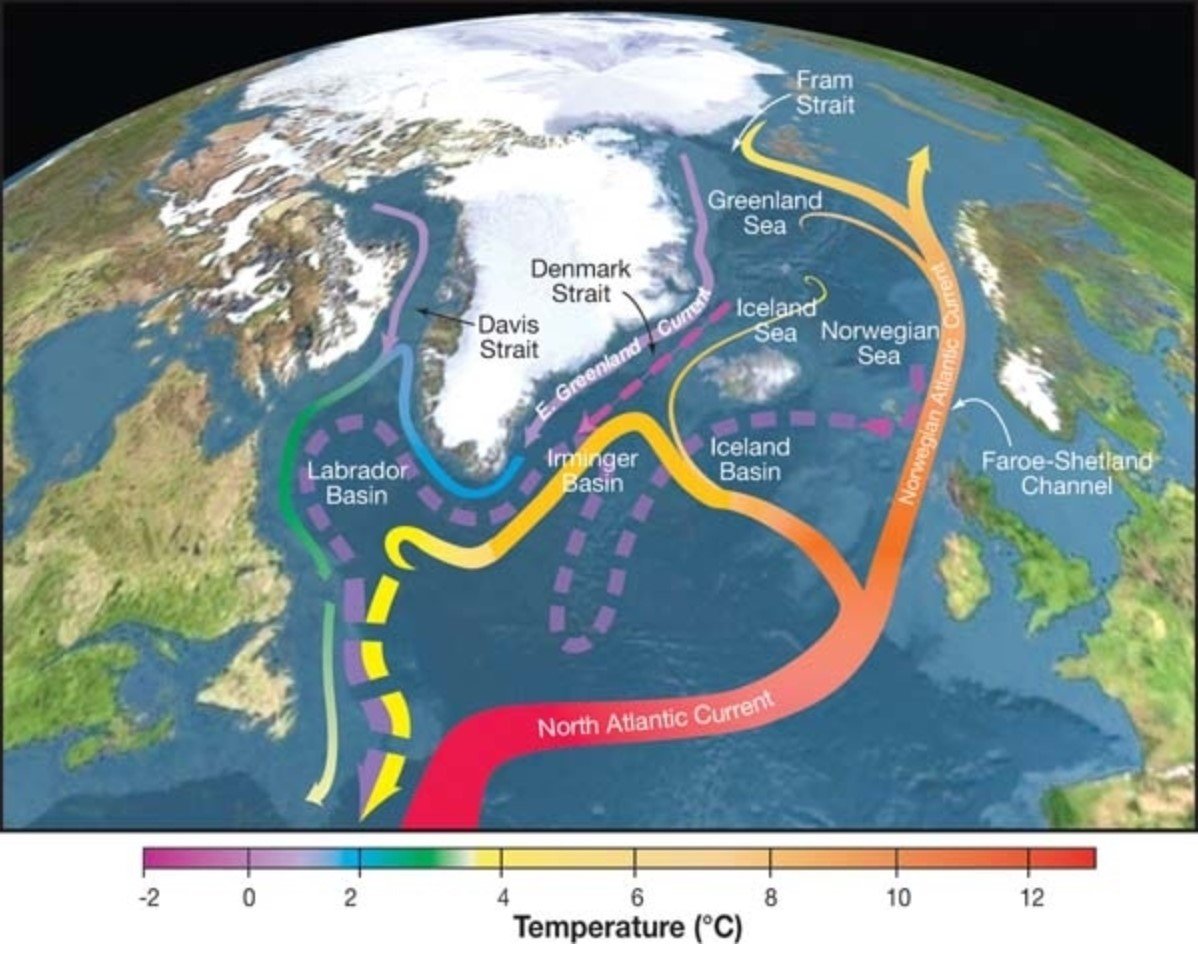
The Gulf Stream is part of a wider system of currents known as the Atlantic Meridional Overturning Circulation (AMOC).
These currents are basically a global conveyor belt, moving warm water near the ocean’s surface from the tropics northwards to the northern hemisphere. It then goes through a cycle that helps warm the northern hemisphere.
How the AMOC Warms the Planet
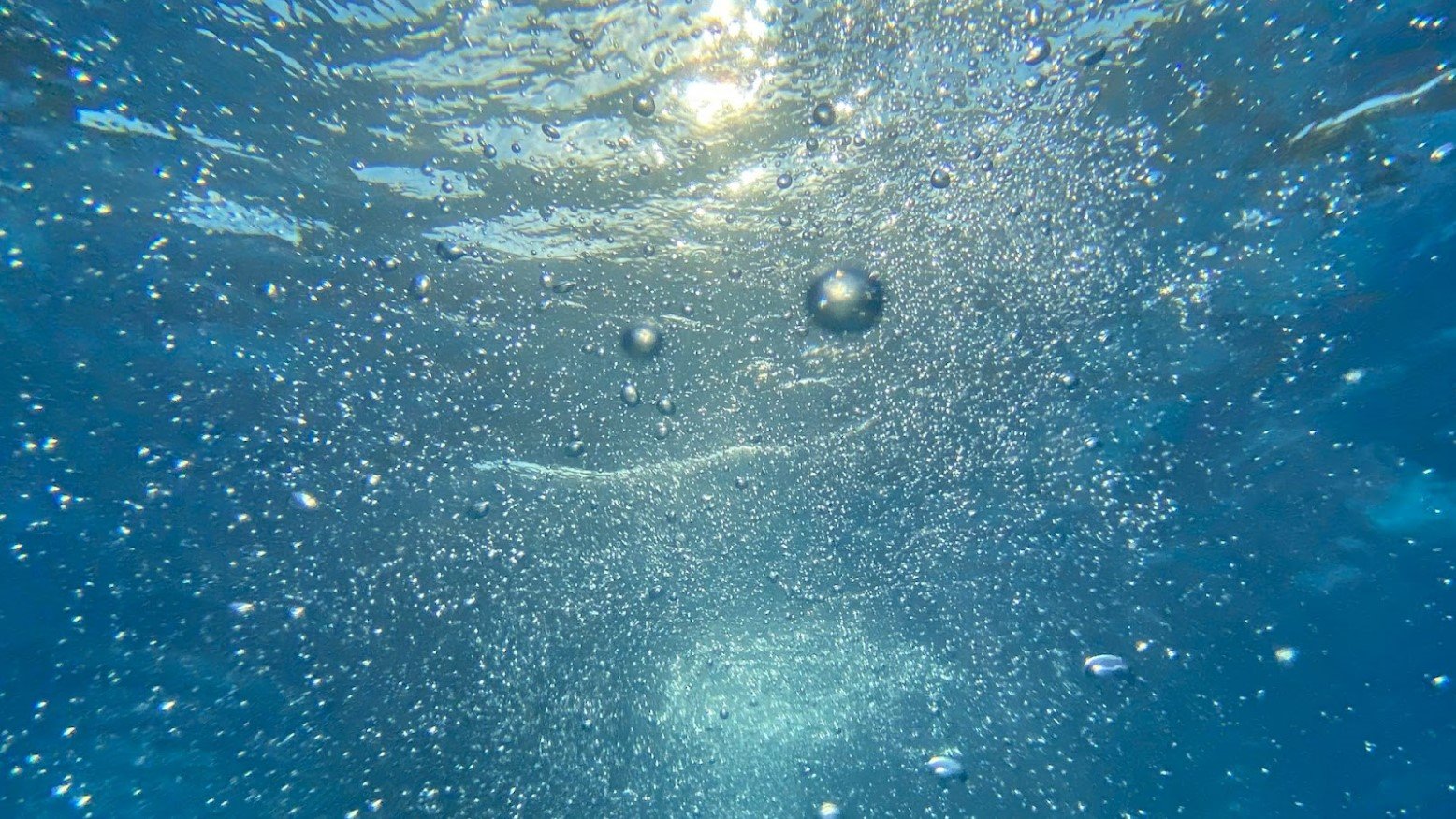
When this warm water from the tropics reaches the North Atlantic around Europe, the UK and the east coast of the U.S., it releases the heat and freezes.
As oceanic ice forms, it leaves behind salt in the ocean waters. A large amount of salt in the water means it becomes denser and sinks. It’s then carried southwards in the ocean depths. Eventually, the water gets pulled back up toward the surface and heats up again in what’s known as upwelling, completing a neat little cycle.
A Powerful Network

The AMOC can transport tremendous amounts of water across the Atlantic Ocean.
Professor David Thornally said: The ocean moves vast amounts of heat around the globe – equivalent to the energy from millions of power stations.”
What Might Its Collapse Mean?

Scientists believe that the AMOC is so vital in bringing warmth to the northern hemisphere that without it, huge areas of Europe would plummet into a deep freeze.
Without the heat from these currents, average temperatures in the northern hemisphere could drop by several degrees. North America and parts of Asia and Europe would all be impacted.
Dangerously Close to Reality
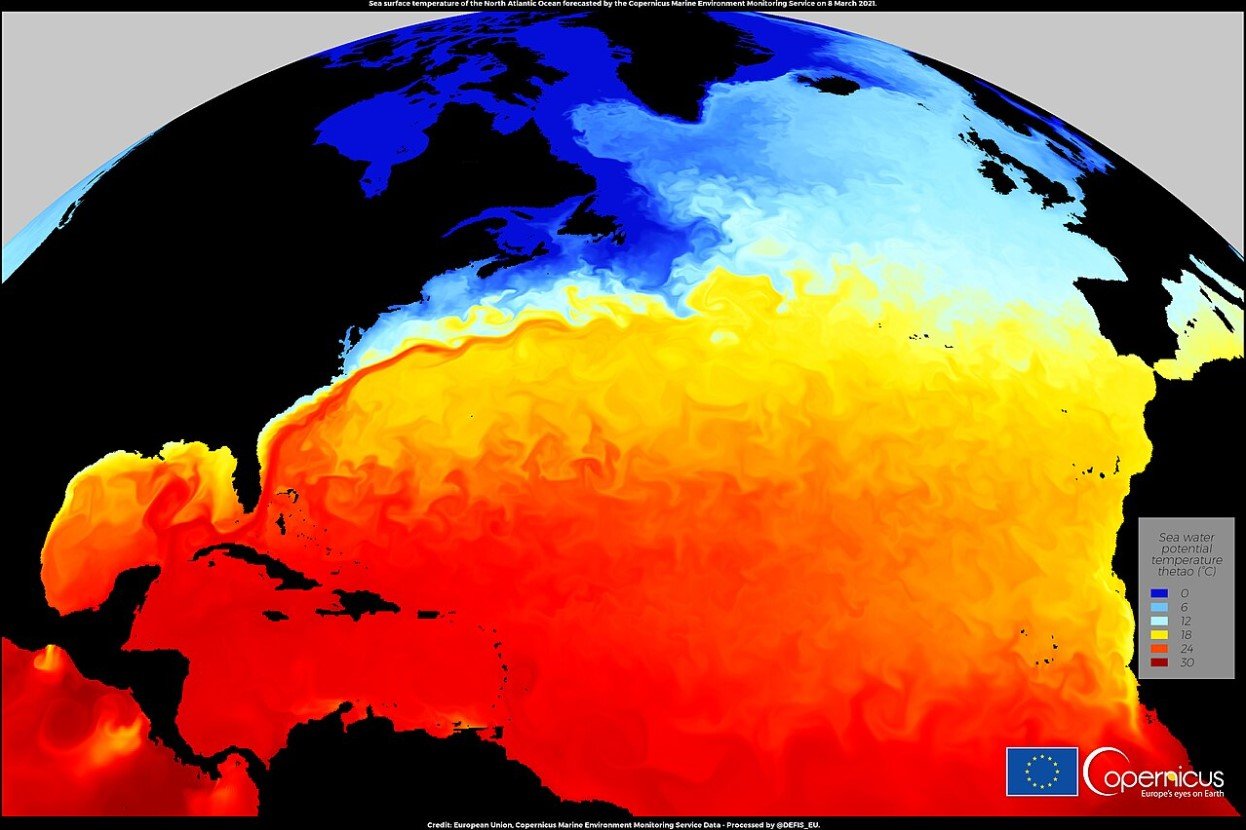
The collapse of the Gulf Stream would also have knock-on effects all around the world. This cataclysmic doomsday scenario might be closer to a very real future possibility than we’d like to admit.
Scientists warn that a sudden shutdown of Atlantic Ocean currents is looking more likely than ever as recent studies identify a tipping point to disaster looming in the not-too-distant future.
Studying This Potential Collapse

A study from a Dutch university examined the potential collapse of currents like the Gulf Stream in great detail, running computer models of possible outcomes.
The study’s lead author Rene van Westen, an oceanographer and climate scientist, says, “We are moving closer to the collapse, but we’re not sure how much closer.”
An In-Depth Simulatino

The Dutch team simulated the flow of the AMOC over 2,200 years.
They factored in how human-caused climate change might affect the AMOC. While they found an AMOC collapse about 1,750 years into the simulation, it was harder to project the study into the near future.
The Million Dollar Question

Knowing when the Gulf Stream might collapse and devastating global weather events like the ones predicted might occur is the “million dollar question”, according to van Westen.
He states: “We are moving closer (to the collapse), but we’re not sure how much closer,” adding that when the planet reaches this “tipping point” also depends on the rate of climate change we as a species are introducing.
Prior Studies
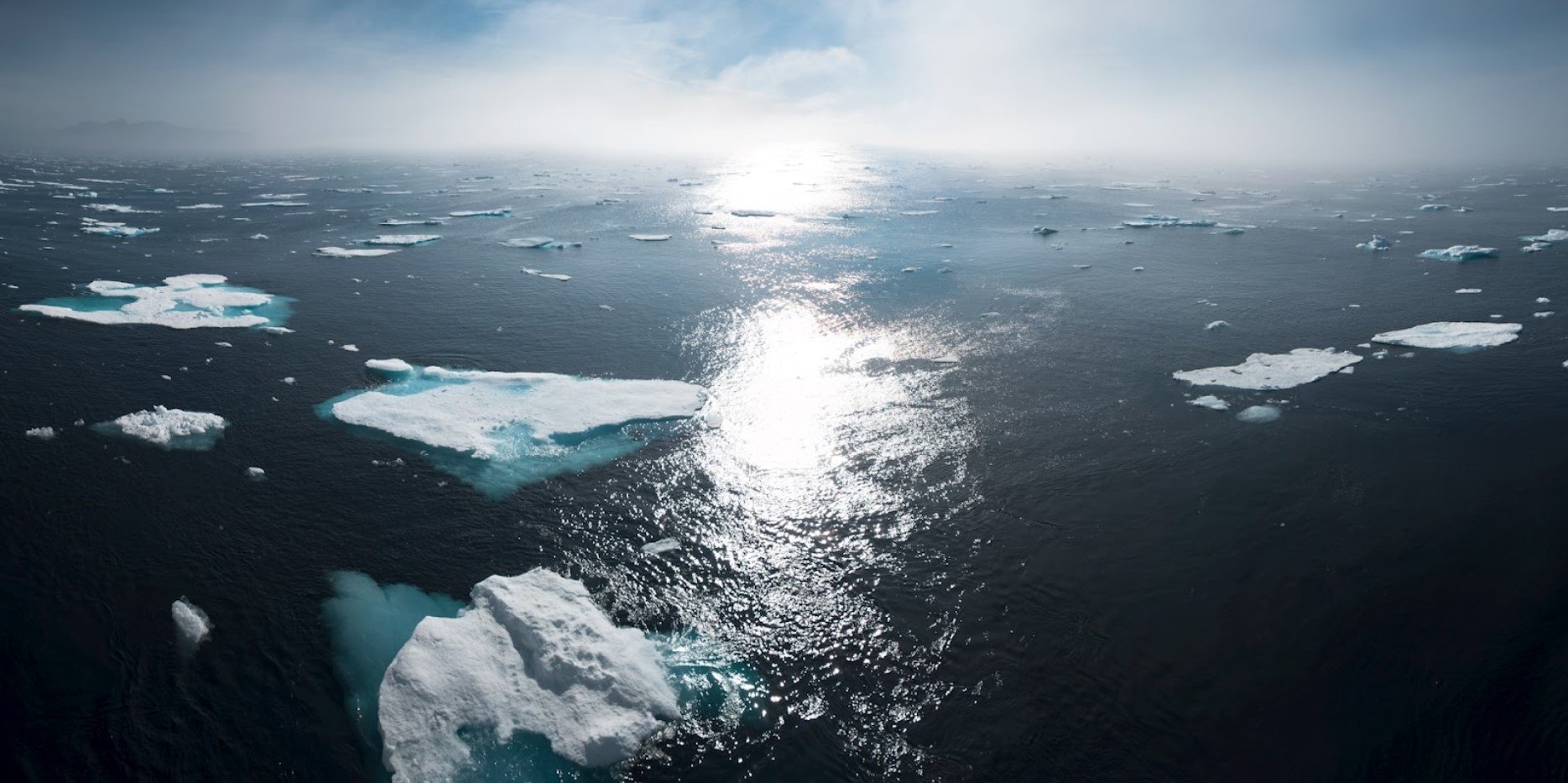
One thing that seems certain, though, is that the AMOC is indeed slowing down, as prior studies have shown.
As more ice melts off the coast of Greenland due to climate change, more freshwater flows into the North Atlantic and slows the cycle the AMOC carries out. Previous thinking had it that an abrupt shutdown of the AMOC could be on the horizon in the next few centuries.
Projections of Future Slowdown

This new study paints a far bleaker picture, with forecasts suggesting that a shutdown of the AMOC could be mere decades away.
The Dutch research team designed a computer modeling simulation that they used to measure what a sudden weakening of the AMOC might look like and the impact it could potentially have.
The Results of the Simulation

They modeled the introduction of freshwater into the Atlantic to project the impact of melting ice in Greenland. The simulation showed that ocean circulation strength gradually decreased until it reached a tipping point where it collapsed entirely.
The model projected this would lead to the European climate cooling by around 1.8°F (1°C) per decade, with some regions experiencing over 5.4°F (3°C) cooling per decade. This is a significantly more rapid change than today’s global warming of about 0.36 F (0.2 C) per decade.
Extreme Cooling

New research from University College London found that the Gulf Stream collapsing could be catastrophic for Europe.
Temperatures in Europe could plummet by 27°F (15°C). Leader researcher Dr Jack Wharton said: “If in the future winds are weaker, it could mean a weaker Gulf Stream and a cooler Europe.”
Global Consequences
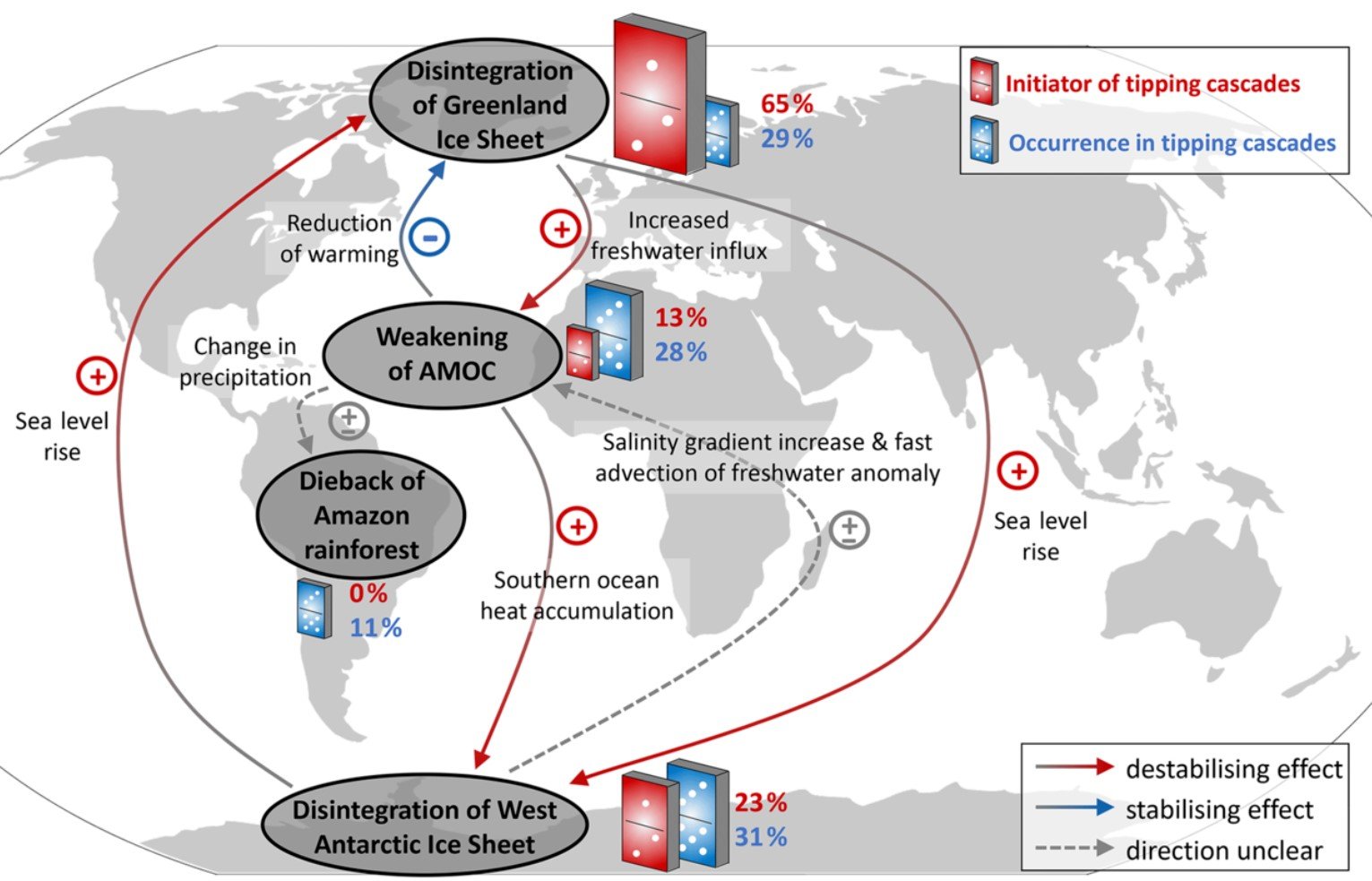
The impact wouldn’t be limited to countries in the northern hemisphere plummeting into a deep freeze. The effects would extend Arctic ice further south, and increase temperatures even more in the southern hemisphere.
This would have knock-on effects like changing global rainfall patterns and disrupting rainforests, with some scientists believing these massive climate changes could lead to catastrophic food and water shortages.
Unable to Adapt

The gravity of the situation is hard to underestimate.
University of Exeter climate scientist Tim Lenton is afraid that there is not much to do to stave off the brunt of the impact of a collapse. An AMOC collapse would be ” so abrupt and severe that they would be near impossible to adapt to in some locations,” according to Lenton.
Reversal of Seasons

If the AMOC collapses, Arctic ice would travel as far down as the southern coast of England, bringing down the average temperatures of Europe and North America.
The Amazon rainforest would its seasons swap over, where its dry season would become rainy, and vice versa.
A Potential Catastrophe

This study and ones like it make for troubling reading. The only positive point seems to be that such a catastrophic change isn’t imminent and may be decades away or longer.
But the AMOC is rapidly approaching a tipping point. This is a stark reminder, if one were needed, that the potential consequences of our planet’s changing climate could be catastrophic. It’s important we take steps to slow or reverse man-made changes to the planet to prevent humanity from plunging into a new ice age.
Greater Understanding of the Risk
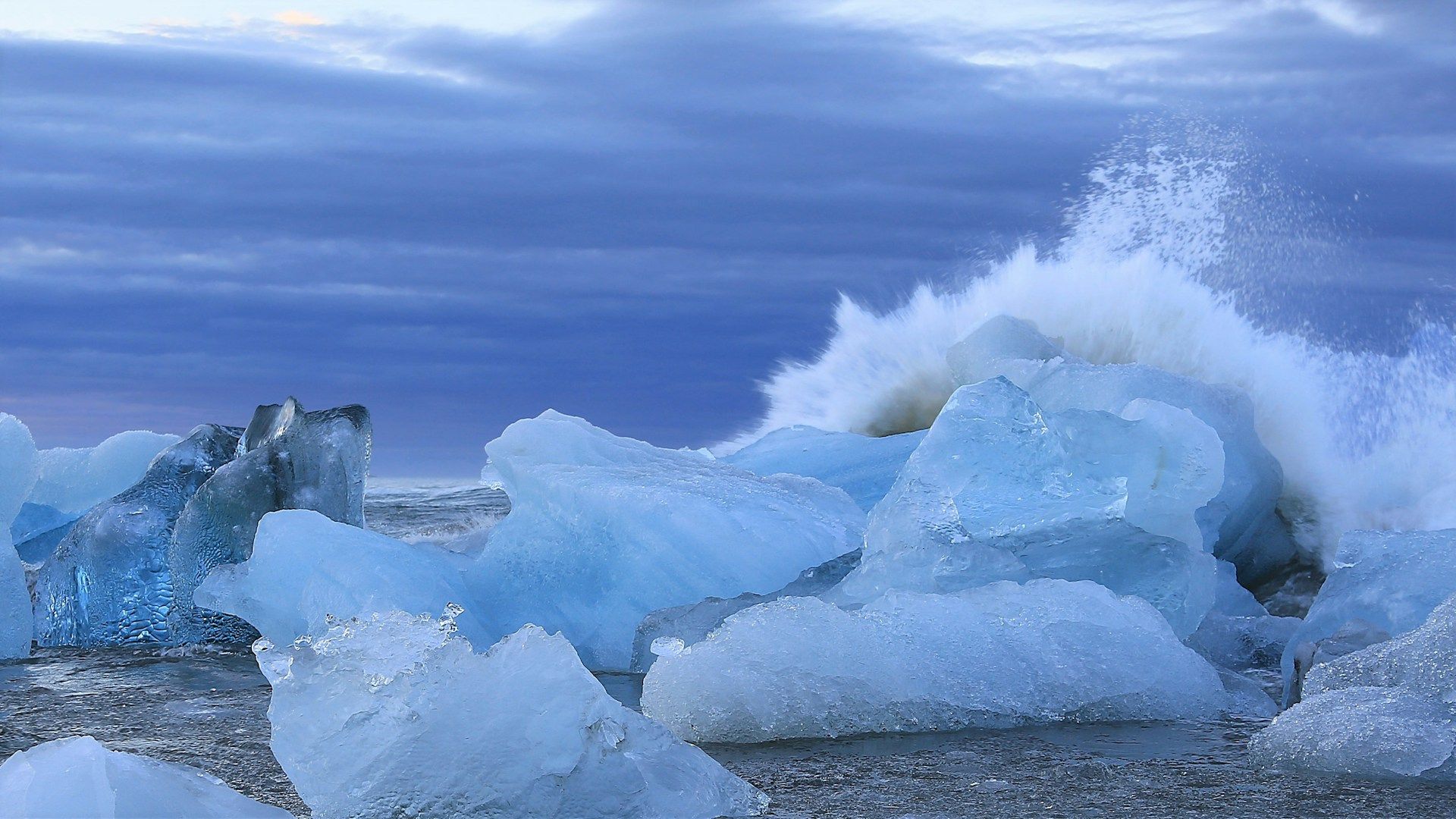
Scientists are only gaining a more accurate understanding of the risk of an AMOC collapse now.
Stefan Rahmstorf, a physical oceanographer at Potsdam University, said researchers thought a collapse was a “low-probability, high-impact risk.” He said five years ago, he would have estimated a 10% chance of an AMOC collapse within this century.
On the Horizon
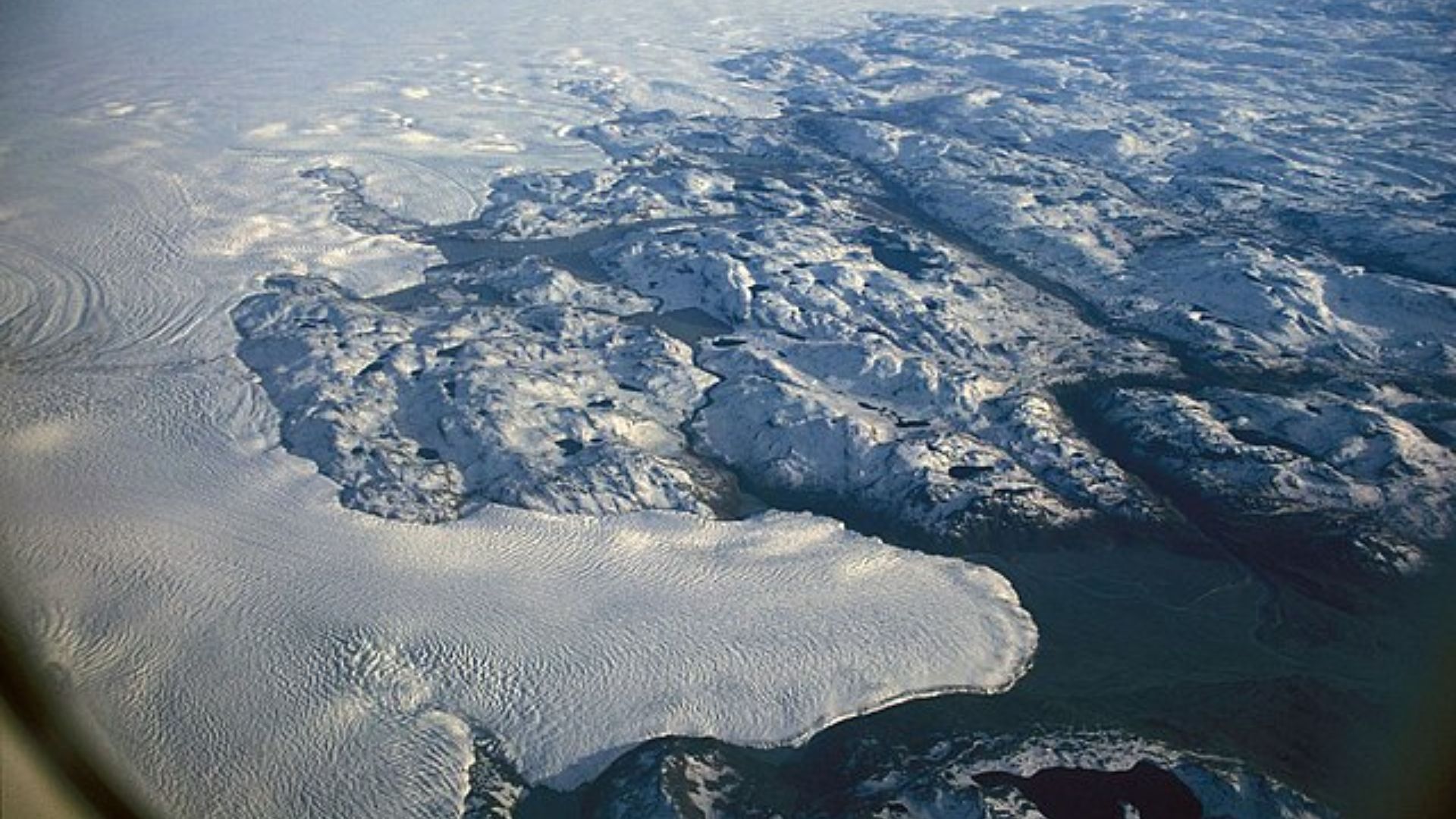
According to CNN, the AMOC could collapse as soon as the late 2030s.
New research (currently being peer-reviewed) predicts a Gulf Stream shutdown could happen between 2037 and 2064. However, the research suggests this collapse is not likely to occur before 2050.
The Chances Have Skyrocketed
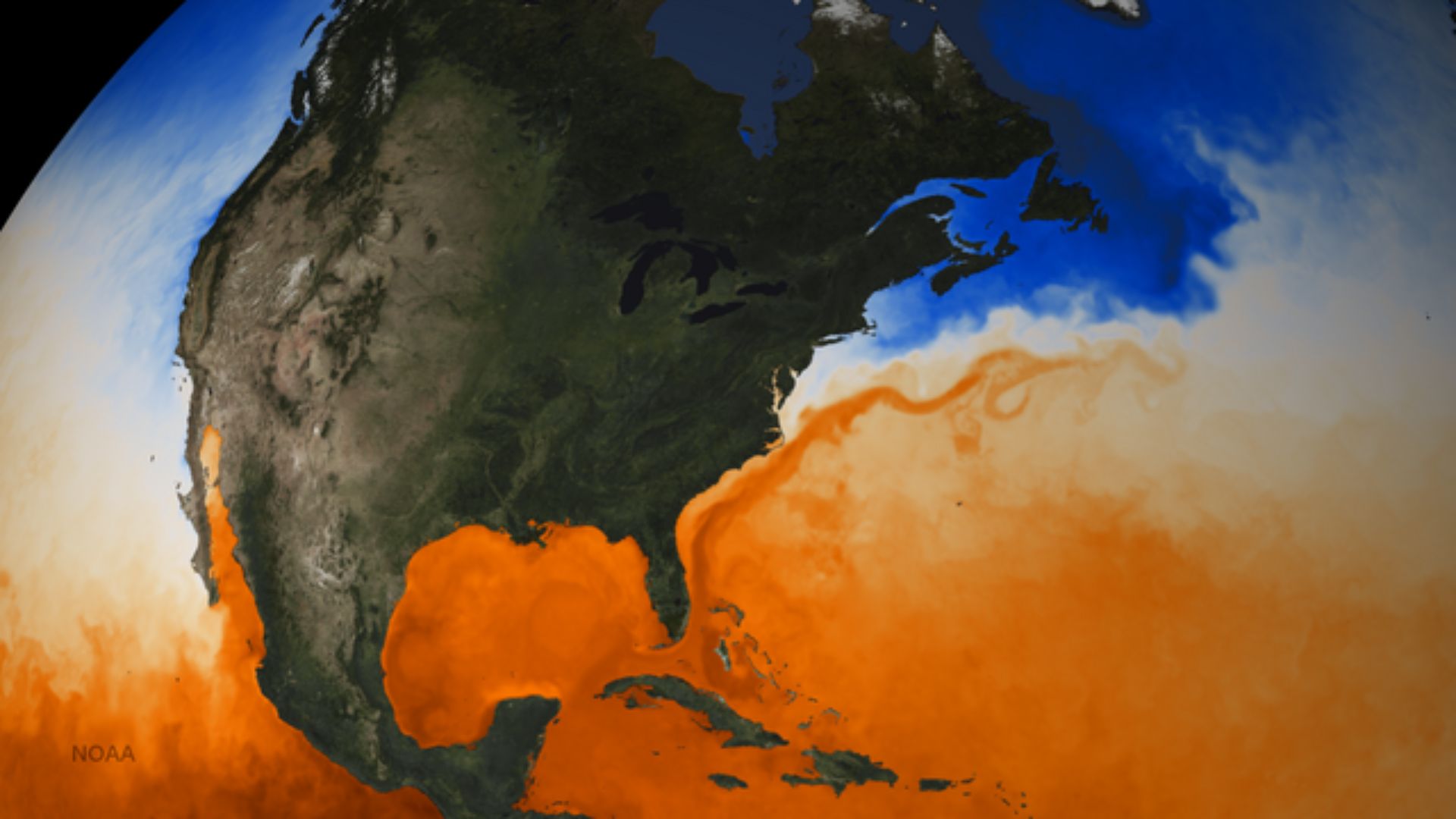
Rahmstorf said a 10% probability was still too high a risk “for a catastrophic impact of such magnitude.”
“There are now five papers, basically, that suggested it could well happen in this century, or even before the middle of the century. My overall assessment is now that the risk of us passing the tipping point in this century is probably even greater than 50%,” said Rahmstorf.
Fear Among Scientists

The scientists behind the research are increasingly anxious about the impending climate chaos the collapse of the Gulf Stream could bring about.
“This is really worrying,” said van Westen, as the threat of a deep freeze looms over the northern hemisphere.
Exacerbating Climate Change

The collapse of the Gulf Stream is not an isolated threat.
Van Westen emphasized that extreme cooling would happen alongside the other consequences of climate change. “All the negative side effects of anthropogenic climate change, they will still continue to go on, like more heat waves, more droughts, more flooding. Then if you also have on top of that an AMOC collapse… the climate will become even more distorted,” van Westen said.
It Could Be Sooner than We Think
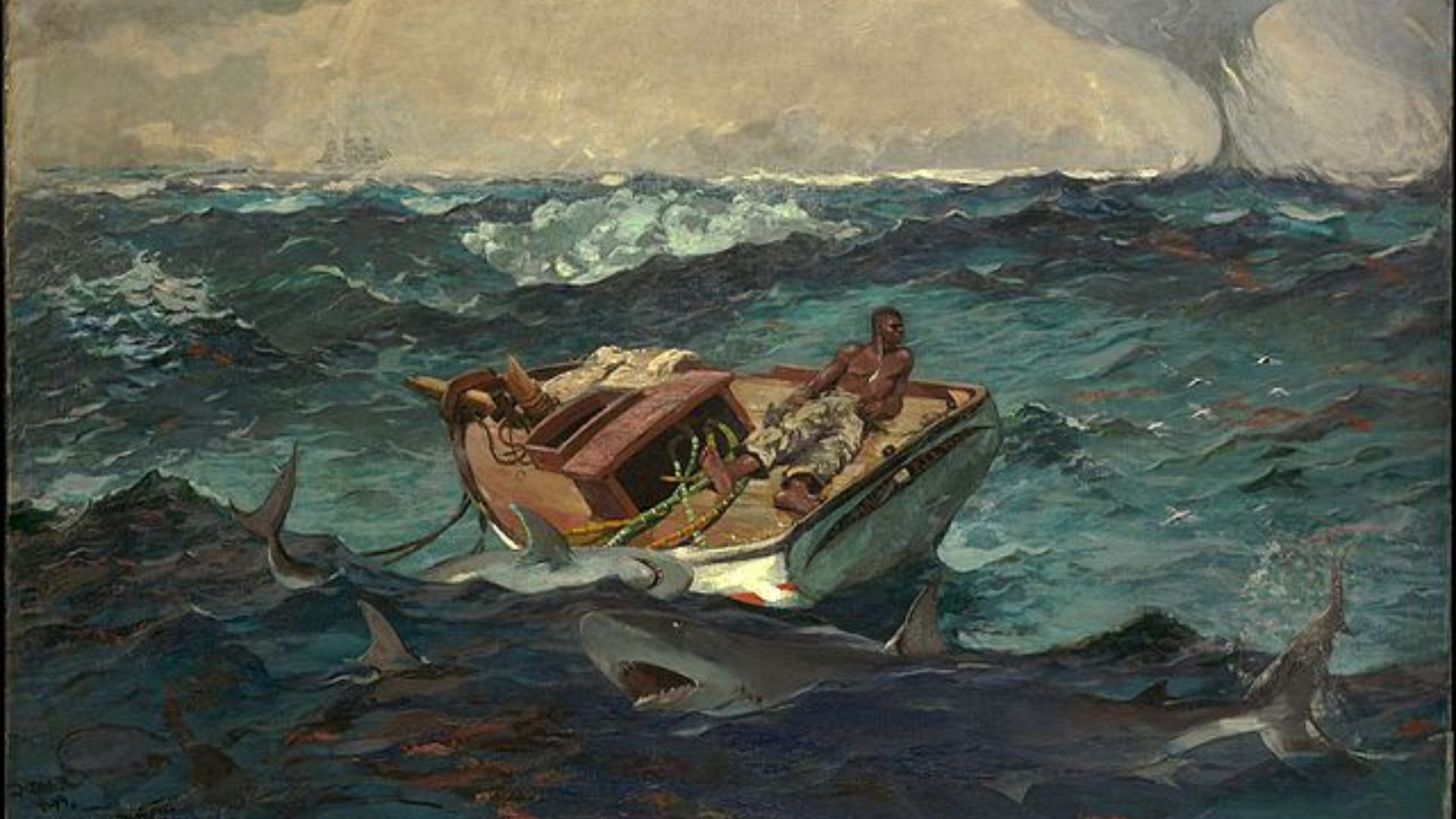
The study is not perfect. However, the limitations of the research may not be anymore reassuring.
The models do not consider the massive amounts of freshwater entering the ocean from Greenland’s melting ice sheet. Rahmstorf said: “You’re already getting a huge influx of freshwater into the northern Atlantic, which is going to completely disrupt the system.” This means the study could underestimate how soon or how fast the collapse might happen.
A Resilient System

While the data paints a bleak picture of the Gulf Stream’s future, other studies show the AMOC’s redeeming features.
A study from 2019 showcased the Gulf Stream’s remarkable long-term resilience and variability. It is an ocean flow four times more powerful than the Amazon River, so it may be able to withstand the effects of climate change for enough time for us to prevent catastrophe.
